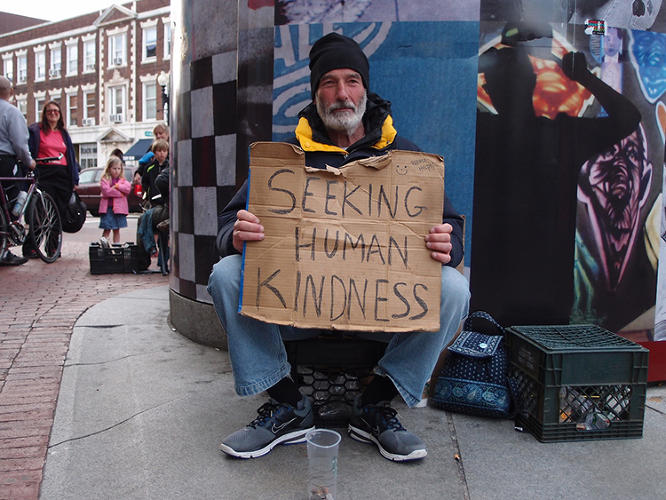
It is not uncommon for the average Filipino to see so many beggars on the street. We see them in our daily commute. We see them as we walk to school. We see them on our way to work. We see them, but that’s it. We, as people, don’t do anything. Little kids with tattered clothes would beg for spare change in the midst of weekday traffic. But instead of helping out, people just shun them. Some people even have this habit of shooing beggars away by throwing food at them or by acting like they aren’t there. And unfortunately, it’s become the norm.
I would take public transportation to school from the WYA Asia Pacific office a few times a week, and to get to the train station, I’d take an overpass. There would be countless beggars around the area everyday—children as young as three, elders as old as eighty, and parents carrying newborn babies. As someone who grew up in the Philippines, sadly, this wasn’t new to me. I’ve somehow grown accustomed to this kind of environment. However, I couldn’t help but notice this particularly old lady who’d always beg in the middle of the overpass. I’d usually see her alone, sitting on top of newspapers, with a paper cup on one hand and a cane on the other. After a few weeks of seeing her daily, I came to realize that she was blind. This woman was blind, alone, and begging for spare change in the middle of this busy overpass. But people just walk past her, not even giving her the time of day. Passersby choose to ignore, and some deliberately turn the other cheek just so they wouldn’t have to deal with her. To make matters worse, her cup wasn’t even full of coins or bills. It was full of candy wrappers and crumpled up paper. People were treating her like a garbage can.
Growing up, I’ve always had a sense of empathy, especially for the homeless. It absolutely breaks my heart to see these people being treated as if they were burdens to society. They get treated like objects, being tossed around and stepped on. I’ve seen people spit on the homeless, and I’ve seen them verbally and physically abused. These people are ridiculed and bullied. It’s not fair to them.
Is this now socially acceptable? Is this how things should be?
No, I don’t think so. In the words of the Dalai Lama, “we are all the same human beings”, thus, we are all equal. And the concept of equality is something that is very rare in today’s day and age. Social classes do not define who we are as persons. The culture that one grows up in should not dictate how he should be treated. Just because someone comes from a different background, or wears different clothing, does not mean that they are any less of a person. It does not mean that their worth is not as important as the others. We, as persons, are all equally valuable and equally important. And we should treat people with that in mind.
Joining the World Youth Alliance has given me the opportunity to promote the value of each person. It has given me a chance to recognize the dignity, the worth, that each person possesses. This alone has molded me to become a better human person.
“I have worth, therefore, you have worth as well.”
Written by Marie Pauline Superable, current intern at the WYA Asia Pacific office.







